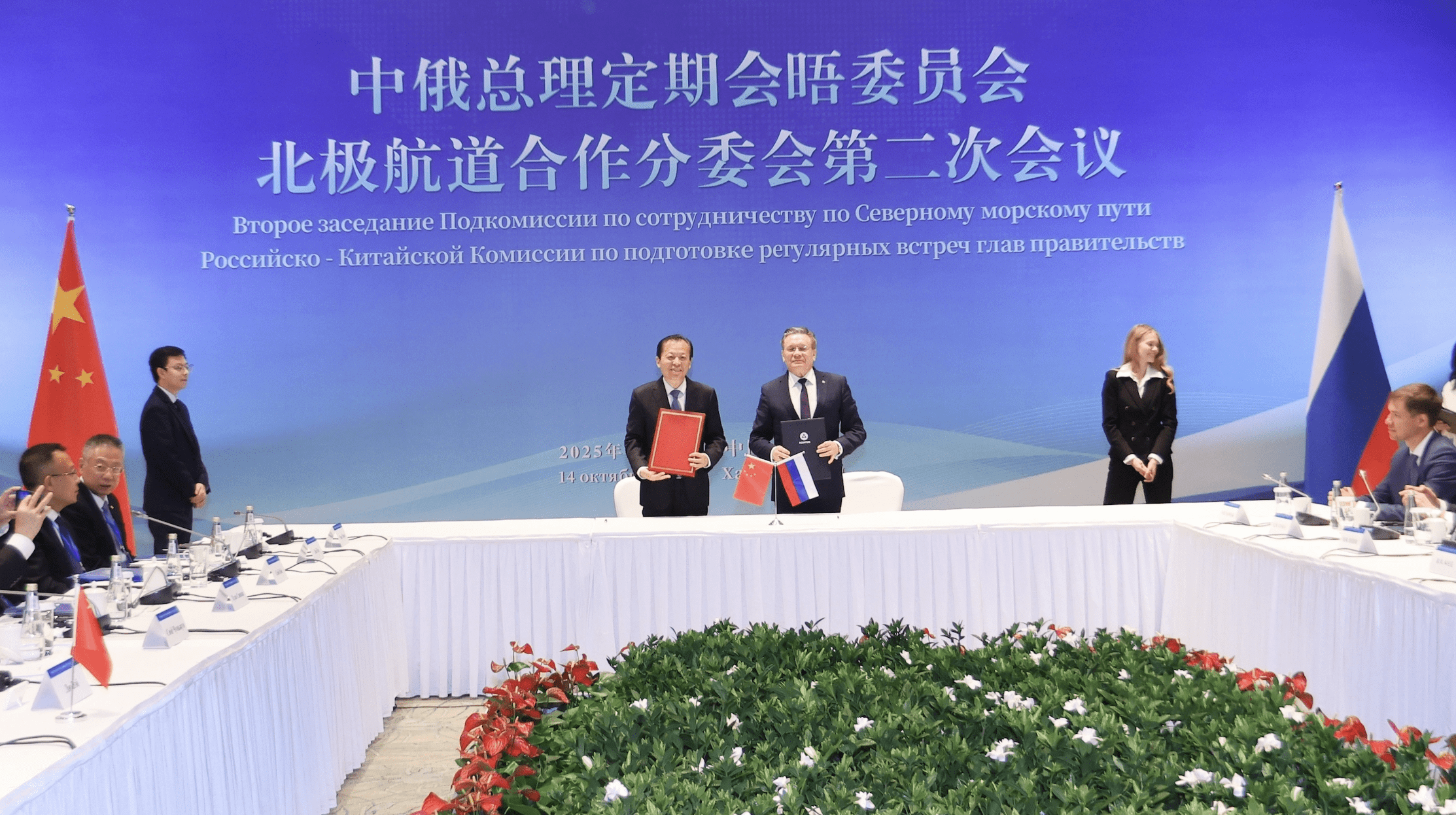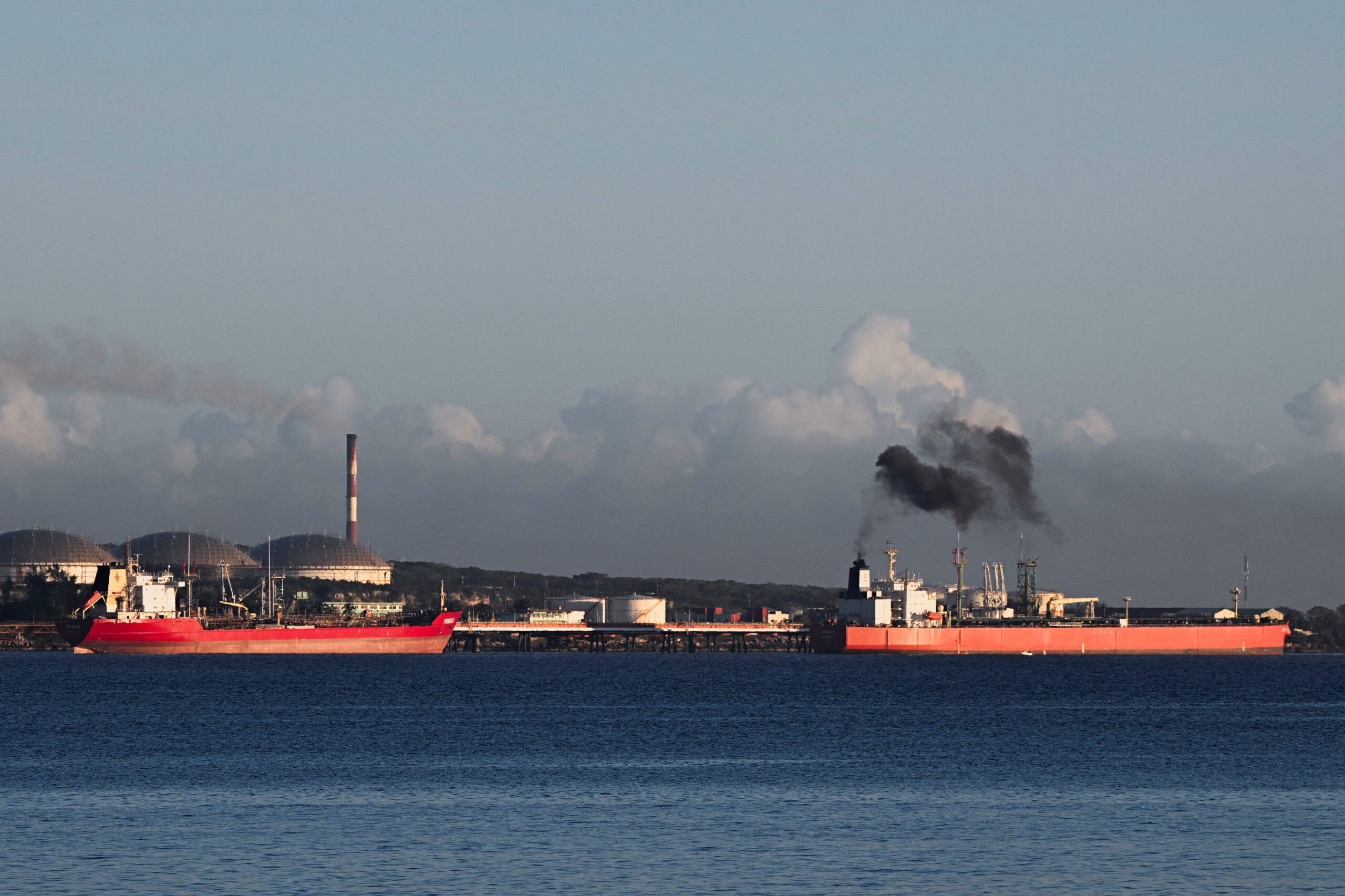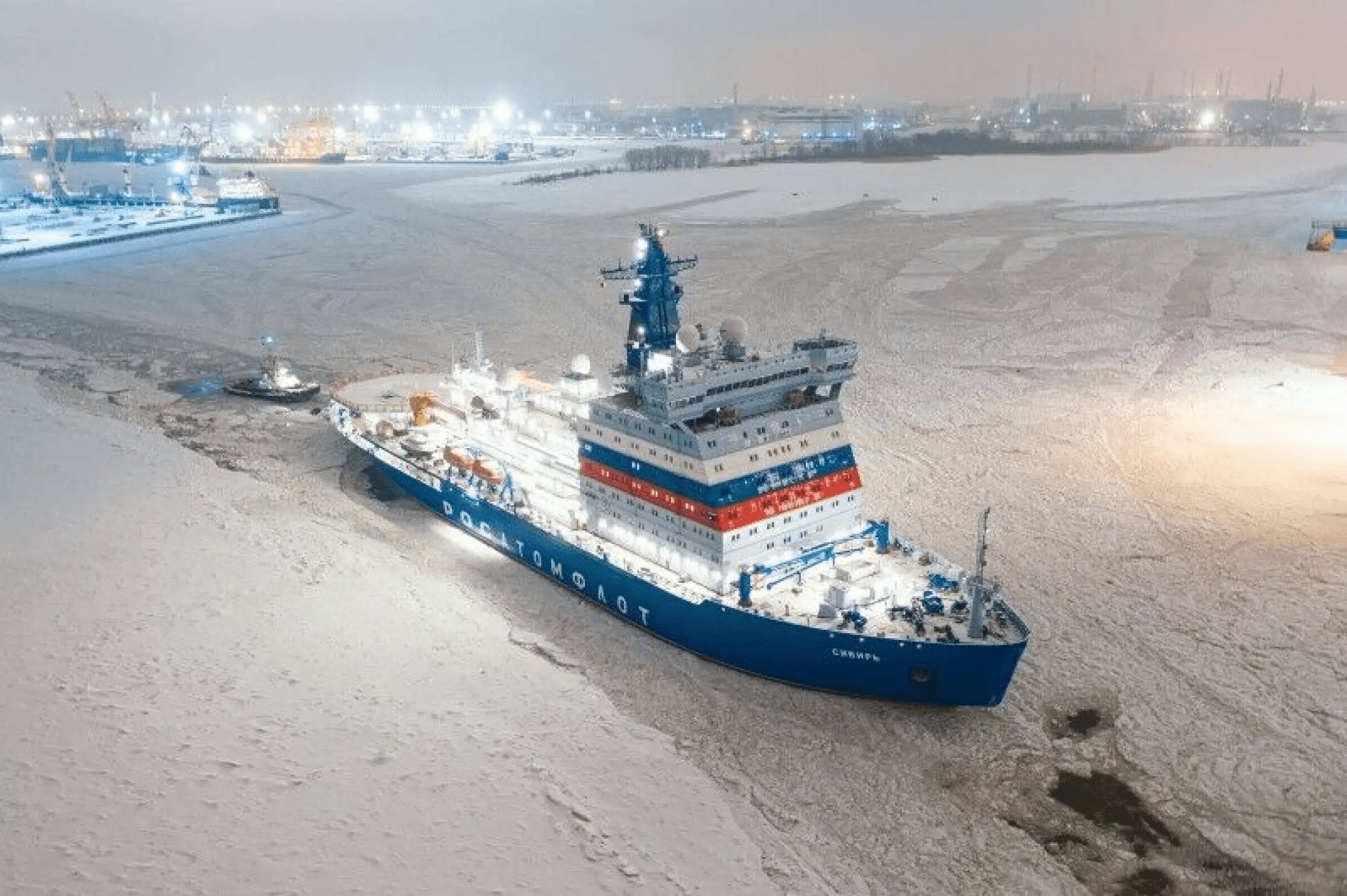Beijing and Moscow have agreed to jointly develop and commercialize shipping along the Northern Sea Route in the Russian Arctic.
The deal was signed in the Chinese city of Harbin last week between the Director of Rosatom, Alexey Likhachev, and China’s Minister of Transport, Liu Wei. Rosatom is Russia’s state enterprise in charge of Arctic shipping and the country’s nuclear icebreaker fleet. The meeting was part of a joint committee on cooperation on the Northern Sea Route established last year.
Russia sees the NSR as a key transport artery of the 21st century, capable of providing faster and more efficient connections between Asia and Europe.
“The decisions made today will give further impetus to Russian-Chinese cooperation in developing the NSR’s potential and will enable us to translate these cooperation opportunities into major capital projects. Our cooperation allows us to diversify global trade routes,” said Likhachev.
Chinese operators have been at the forefront of using the emerging Arctic shortcut connecting Asia to Europe. Last week Sealegend’s Panamax containership Istanbul Bridge completed a record transit of the Arctic in just 5 days. The full journey from Ningbo-Zhoushan, China to Felixstowe, UK took 20 days, compared to around 40 days for a similar voyage via the Suez Canal.
The Hong Kong-based operator aims to establish a regular China-Europe Arctic Express service during the summer months when the route is routinely free of sea ice.
The new agreement comes on the heels of greater Russian-Chinese cooperation in the region ranging from energy sector investments to joint naval patrols off Alaska’s coast.
Earlier this summer Chinese research vessels, including several icebreakers, conducted months-long voyages throughout the Arctic Ocean. A government spokesperson at the time indicated that scientific research about ice extent and the movement of sea ice was critical to optimizing commercial shipping operations in the region.
With continued disruptions along the Suez Canal route from Houthi activity, the Arctic shortcut has been touted as a possible alternative trade route, at least during a select few summer months.
Russia has been eager to welcome international operators to the route. But this category of traffic has dried up almost completely since the beginning of the full-scale Ukraine War with even niche Western operators now rarely utilizing the route. Non-Russian traffic has almost completely shifted to Chinese companies.
Last year 95% of international Arctic transit traffic flowed from Russia to China. The latter has emerged as a key buyer of Russian Arctic crude oil receiving close to two million tonnes in 2024. Earlier this fall an oil tanker without ice-classification got stuck along the route for several days due to late-season sea ice.
Editorial Standards · Corrections · About gCaptain

 Join The Club
Join The Club











